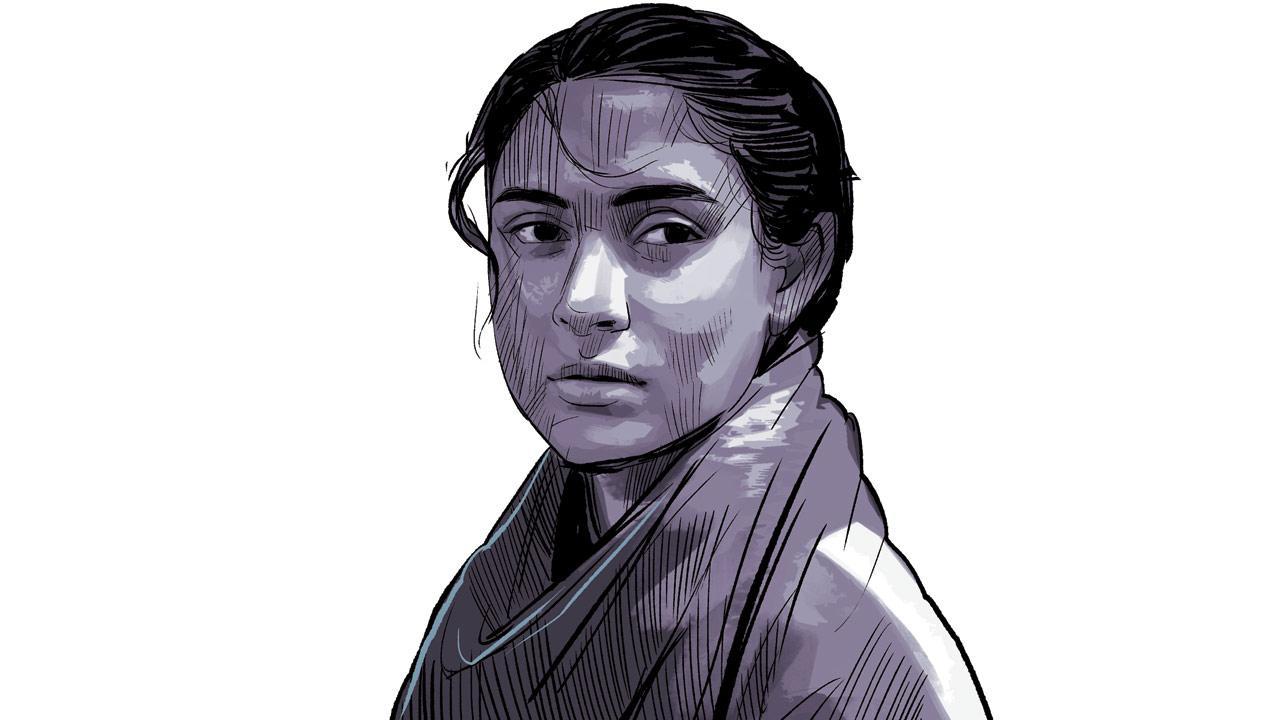The film, that had its world premiere at the Toronto International Film Festival, TIFF, also won acclaim at the Busan Film Festival

Illustration/Uday Mohite
![]() Saba, directed by Maksud Hossain, is a superb debut feature from Bangladesh. It is a moving film about a young woman who becomes a devoted caregiver to her ageing, paraplegic mother--and how this responsibility overwhelms her, putting her job and love life in jeopardy. The film, that had its world premiere at the Toronto International Film Festival, TIFF, also won acclaim at the Busan Film Festival.
Saba, directed by Maksud Hossain, is a superb debut feature from Bangladesh. It is a moving film about a young woman who becomes a devoted caregiver to her ageing, paraplegic mother--and how this responsibility overwhelms her, putting her job and love life in jeopardy. The film, that had its world premiere at the Toronto International Film Festival, TIFF, also won acclaim at the Busan Film Festival.
In addition to stalwart fiction feature directors like Mostofa Sarwar Farooki, newer voices from Bangladesh are being acclaimed at international fora, including Abdullah Mohammad Saad (Cannes), Rubaiyat Hossain (Toronto), Rezwan Shahriar Sumit (London), Nuhash Humayun (South by Southwest), Abu Shahed Emon (Busan), Iqbal H Chowdhury (Busan), Mohammad Rabby Mridha (Busan), Bijon Ahmed (Seattle), Shabnam Ferdousi (Toulouse), and now Maksud Hossain. Hossain, who grew up in Abu Dhabi and worked in the US, moved to Dhaka to make his debut feature. He has directed a number of shorts, including Three Beauties, which won a Student Academy Award.
Hossain is director, as well as a writer and producer of Saba. The screenplay, co-written by Hossain and his wife Trilora Khan, is partly autobiographical, as Khan was the primary caregiver for her paraplegic mother for 25 years. In Saba--the name of its protagonist--Mehazabien Chowdhury plays the sole caregiver to her paraplegic mother Shirin (Rokeya Prachy), in a household where her father is missing. When the mother has a heart attack, Saba struggles to raise funds for her surgery. She unsuccessfully tries to sell their home for this, and then struggles to find a job, taking up work at a sheesha bar (hookah lounge). There, her boss Ankur (Mostofa Monwar) and she start a potentially romantic relationship, even as he does shady deals, to save up and seek opportunities abroad. Yet, he insists Saba reflect on what she wants from life for herself, and also that they take Shirin for a picnic in the park in a wheelchair, that comes as a breath of fresh air for all three. Later, when Shirin’s condition worsens, and Saba is desperate to save her life, both her crucial relationships will be sorely tested: her fragile relationship with Ankur, as well as her relationship with Shirin herself, leading to an emotional, moving climax. The film’s microcosm underlines Bangladesh’s persistent frustration with its poverty and lack of jobs at home, which eventually led to Bangladesh’s political revolution in August this year.
Hossain’s direction is powerful, and his film--that we see through Saba’s eyes--is decidedly feminist. It is daring for a South Asian film to have a female-led narrative, and this is the debut film feature of Mehazabien Chowdhury, popular TV star of many dramas and series (Forget Me Not). It is equally courageous of Mostofa Monwar, a fine actor with a distinguished body of work (Live From Dhaka; No Ground Beneath the Feet), to accept a relatively smaller, yet pivotal role. Kuch toh seekho, Bollywood! The beautiful Chowdhury is entirely convincing, fragile yet steely at the same time. Rokeya Prachy (Doob – No Bed of Roses) is good as Shirin, guilty of being a burden to her daughter. Monwar is superb as a considerate, yet shady guy, who is 100 per cent unreliable. The screenplay finely observes the caregiving role reversal, the mother-daughter’s love-hate relationship, born of frustration with circumstances--a routine of medicines, reluctant bath, diaper change, with the promise of delicious kachchi (biryani) for Shirin’s good behavior. Above all, the film astutely observes Dhaka today, and reminds us, whatever our circumstances, to stop to smell the roses before it is too late. Barkat Hossain Polash’s cinematography stays close to Saba almost throughout, her close-ups revealing emotional depths. Editor Sameer Ahmed holds our attention through this 95 min feature. Music composer Amman Abbasi and sound designer Niraj Gera effectively evoke Dhaka. The raft of producers are Uri Singer, Arifur Rahman, Tamim Abdul Majid, Maksud Hossain, Trilora Khan, Mehazabien Chowdhury and Barkat Hossain Polash. The women crew include producer and screenwriter Trilora Khan, producer and actress Mehazabien Chowdhury and costume designer Bijaya Ratnabali. I look forward to the film’s wide release.
Meenakshi Shedde is India and South Asia Delegate to the Berlin International Film Festival, National Award-winning critic, curator to festivals worldwide and journalist.
Reach her at meenakshi.shedde@mid-day.com
 Subscribe today by clicking the link and stay updated with the latest news!" Click here!
Subscribe today by clicking the link and stay updated with the latest news!" Click here!








